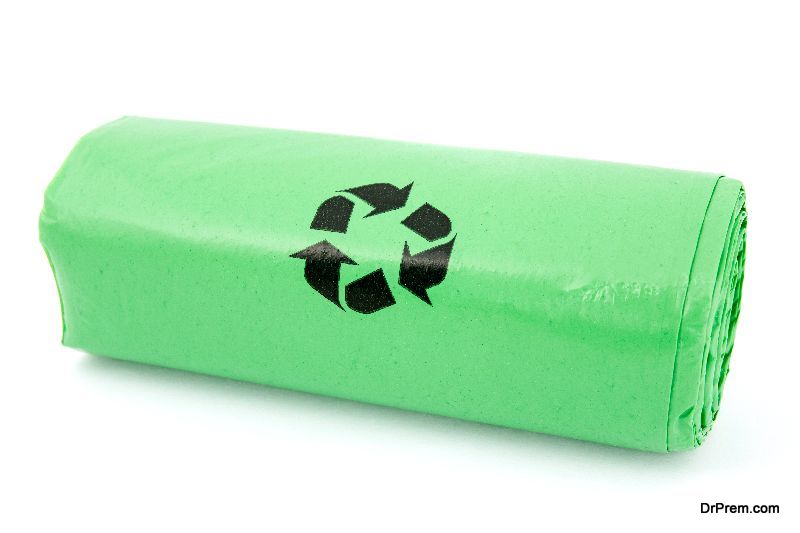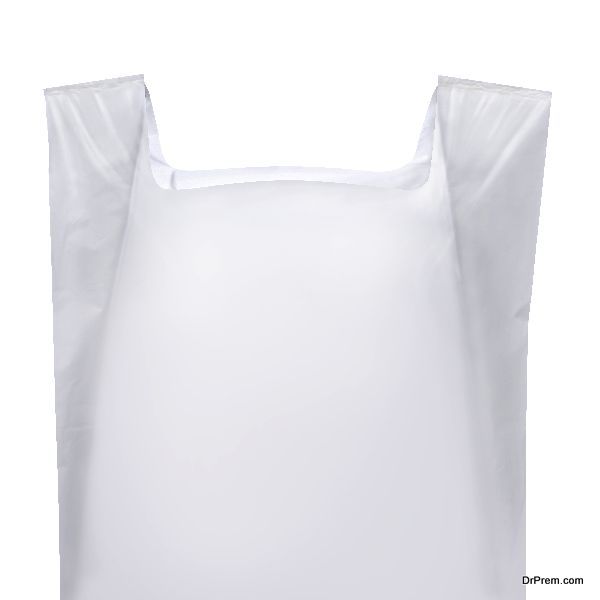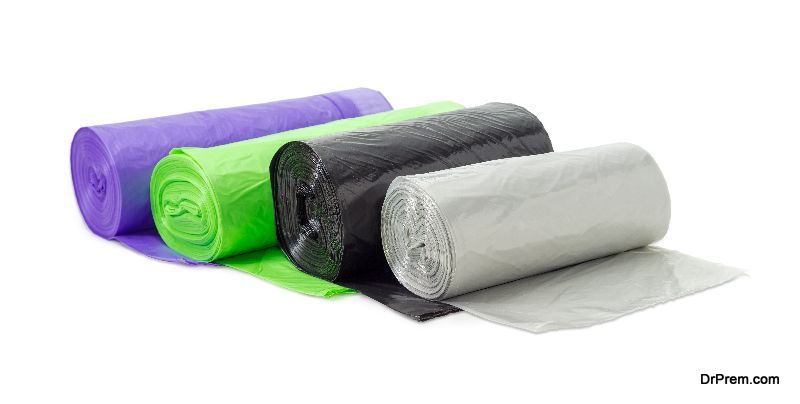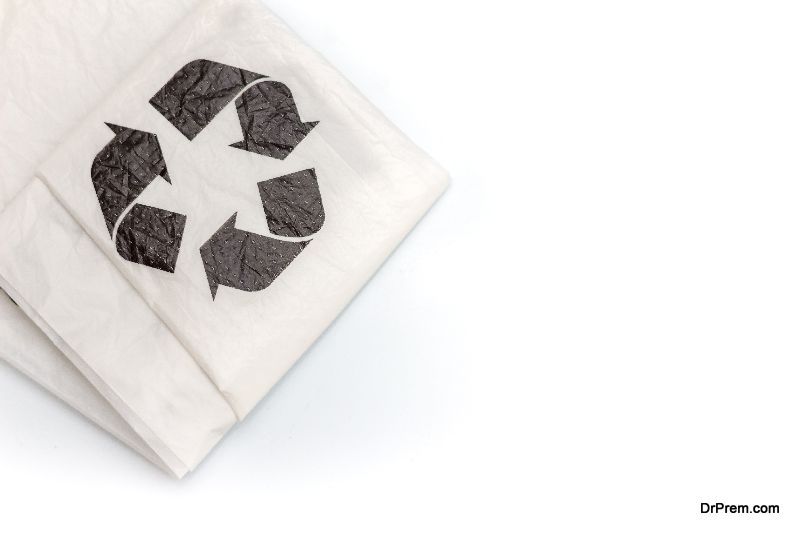Go to any market and pick up a product and more often than not it is packed in a plastic bag. With tons of products comes the demand for that much plastic. All this plastic adds up.
Traditionally, plastic bags have been made from petrochemicals. These consist of long polymeric chains that resist decomposition by the breakdown of molecules. They can last hundreds of years in the environment polluting land and water resources alike. Biodegradable plastic, on the other hand, is capable of natural decomposition in the presence of air and sunshine. Microorganisms may also be used to carry out the breakdown of these plastic bags.
How does biodegradable plastic help?

Using bioplastic reduces our petrochemical dependency. Bioplastics are made from cornstarch, vegetable oils, and grains. Oil won’t last forever and the political, environmental and economic implications of depending on oil are serious.
Also, bioplastics require lesser energy and Carbon output to be produced, and when finally discarded, they release up to 75% lesser greenhouse gases.
Composting is the process of recycling bags that help add nutrients to the soil, resulting from the breakdown of the plastic. Some are capable of home composting while others may need a commercial composting facility. This is a big win for the environment.
Limitations of biodegradable plastic

Where segregation and composting facilities are not available, most biodegradable plastics will inevitably arrive at a landfill. The conditions for biodegradation are plenty of sunshine and oxygen. However, landfills are designed to compress and reduce the amount of space occupied by waste. They do not aid biodegradation. As a result, the pace at which the breakdown proceeds is extremely slow and the waste just stay put with its non-biodegradable counterparts. Most landfills are also made airtight to contain greenhouse gases. If the conditions are dry and the landfills are made airtight, anaerobic decomposition will occur. This type of decomposition releases methane and carbon dioxide, both highly potent greenhouse gases.
Another problem that arises with the decomposition is the fact that biodegradable plastic cannot be recycled with other types of plastics. If bioplastic is mixed with these, it contaminates the whole batch.
The land and resources used to cultivate corn and other materials from which bioplastics are manufactured could very well be used to grow actual food too. The unavoidable fertilizers and pesticides bring in a different set of problems. Also, these bags are usually weaker than traditional bags requiring double bagging in some cases.
How to choose the right one?

A set of questions to ask yourself when you buy these plastic bags are as follows:
- How much petroleum content is present?
Look for 100% plant-based bags. The label should specify which plant was used. If the bag says polyethylene, do not buy it as these bags are made of petrochemicals. They just have additional compounds to speed up the degradation process. Such bags disintegrate into fine dust on prolonged exposure to sunlight and oxygen. This dust is not environment-friendly as it may have heavy metal residues
- Does it follow International standards?
It is easy for a company to wave a flag of biodegradability as it is almost always interpreted as eco-friendly. However, biodegradability does not ensure safe breakdown. Hence, it is smart to buy products that conform to international standards. Some of the organizations that set standards and testing techniques for biodegradation, eco-toxicity, and disintegration are as follows:
European Standardization Committee (CEN)
American Society for Testing and Materials (ASTM)
International Standards Organization (ISO)
German Institute for Standardization (DIN)
- Is home-composting possible?

Certification such as OK Home Compost ensures that the bag decomposes at temperatures less than 55-60 degrees Celsius. This certification is issued by a Belgian company, Vincotte.
Integrating biodegradable plastic into our lives for our plastic needs make sense but they must be disposed of appropriately to be of any help to the system. The three Rs (Reduce, Reuse and Recycle) are still the most important lessons for us when it comes to promoting the health of our planet. Reducing the number of plastics we discard is the best decision we can take. Opting for reusable bags instead of disposable ones is a way to do this. Composting where possible will reduce the amount of plastic waste you create. Only time will tell if biodegradable plastic gives us a net win in the long run. For now, reducing the use of plastic when possible is the most impactful option we can choose.

